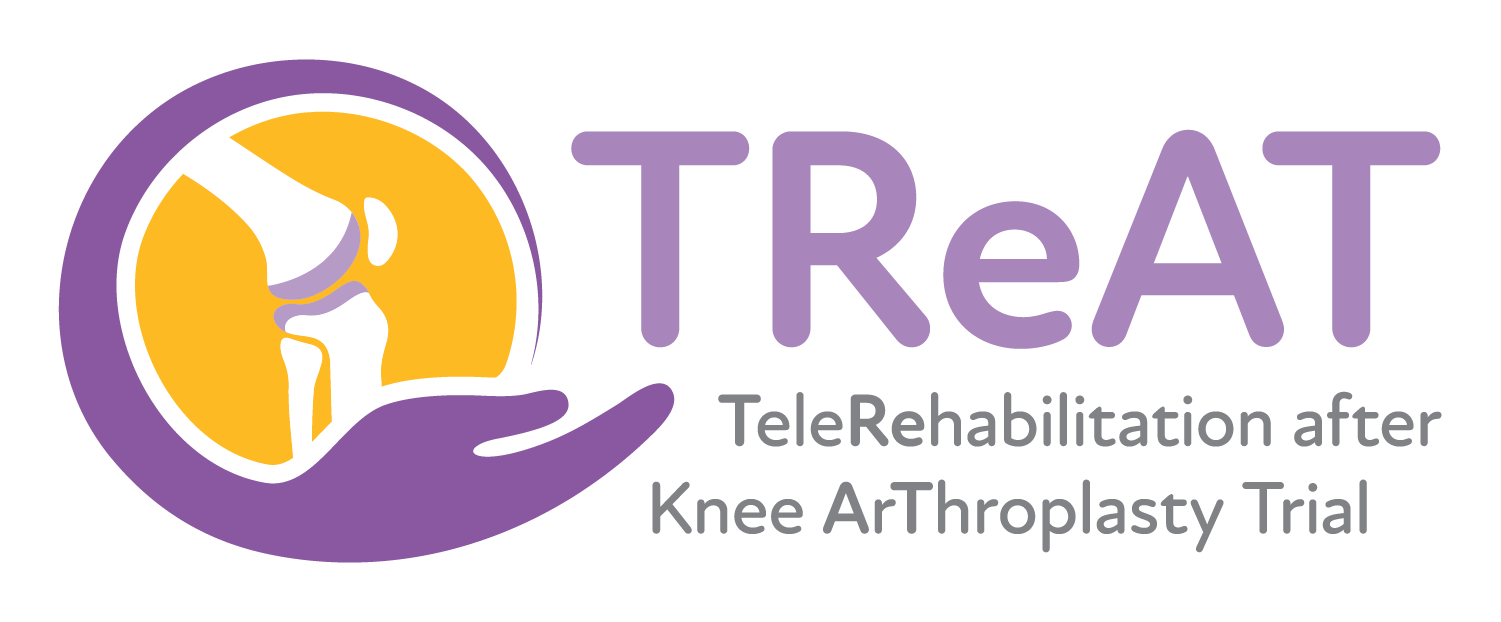The TReAT trial: Mobile application for rehabilitation support after knee replacement
Start Date
Project location
- India

Background
Knee replacement improves the quality of life for those suffering from disabling knee osteoarthritis. Physiotherapy is an important component of the rehabilitation phase following surgery for restoring function and improving quality of life. However, poor adherence to physical therapy due to various socio-environmental and patient-related factors delays recovery. A lack of mechanism for the continuum of care following discharge to home leads to sub-optimal outcomes, chronic knee pain and patient dissatisfaction in some proportions of individuals.
Evidence suggests that home-based physical rehabilitation with a monitoring mechanism is as good as and cost-effective compared to clinic-based rehabilitation. In India, unsupervised home-based rehabilitation is the usual care, leading to a considerable amount of out-of-pocket expenditure to seek physiotherapist support at home. Hence, keeping the local requirements and literacy level in mind, a customised and context-specific rehabilitation monitoring intervention using a mobile application needs to be developed and evaluated for optimal care, especially during the early recovery period.
Aim
To develop, test the feasibility, and evaluate the clinical and cost-effectiveness of a telerehabilitation support strategy.
- To improve functional outcomes in individuals undergoing knee replacement.
Research Methodology
This is a five-year project divided into three phases:

- Formative phase (1 year)
- Pilot phase (6 months)
- Randomised controlled evaluation phase, TReAT trial (2.5 years)
In the formative phase, the m-Health intervention-based model will be developed based on literature evidence, end-user perspectives collated from semi-structured questionnaires, in-depth interviews (mixed methods design), stakeholder consultations, and iterative end-user testing.
The intervention would consist of information to patients (education materials and exercise videos), remote monitoring features via e-diary and range of motion of knee joint using a mobile app (for the patient, family member, and health care providers), and facilitate teleconsultation between patient, surgeon, and physiotherapists via audio-video-messaging/calls.
As a result of this intervention, the patient would be better able, more motivated, and more capable of adhering to the rehabilitation program, which would lead to improved knee function as compared to the usual course of treatment.
To evaluate intervention effectiveness, safety, cost-effectiveness, and end-user satisfaction of telerehabilitation monitoring, the mobile app developed on the SMARTHealth platform will be pilot tested before an open-label randomised controlled trial, which will be conducted at AIIMS-Delhi.
The mixed-methods design will be used in the evaluation phase as well.
Current Status
The project is currently in the formative phase. In the coming months, the project will implement a trial protocol, community engagement activities and stakeholder consultations.


